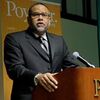"Bradleys from the 30th Armored Brigade Combat Team were last sent to Syria in late October 2019 to guard oil infrastructure from [Daesh] militants, officials said at the time," Army Times reported Friday. "They were quietly pulled out after roughly a month when combined patrols with Turkish forces 'never materialized' and the 'mission requirements changed,' a military official in the region previously told Army Times." One year later, the US military is sending such forces back to Syria. What's the problem here, other than that the US should never have engaged in regime change in Syria in the first place?
US President Donald Trump is preparing to nominate a successor to Supreme Court Justice Ruth Bader Ginsburg this week. Senate Majority Leader Mitch McConnell (R-KY) said back in 2016, following the death of Justice Antonin Scalia, that the American people should be allowed to vote in the presidential election and through that process provide their input to the Supreme Court nomination process. Sen. Lindsey Graham (R-SC) made clear his belief that Supreme Court appointments shouldn’t be pushed through in an election year, going so far as to say that if a similar situation came up in the future, "I want you to use my words against me." How do we see ourselves through the dust created by this political spin?
"Close to 1 million people have died of the virus around the world, a staggering toll," the New York Times reported Monday about the COVID-19 pandemic. "Around the world, at least 73 countries are seeing surges in newly detected cases." What are we to make of this?
US Claims UN Sanctions on Iran Reinstated: The World Disagrees - "On Sunday, the United States reiterated that “snapback sanctions” against Iran are back in place at the United Nations, and that all nations are compelled to obey them," Antiwar.com reported Sunday. "They say that the US was allowed to unilaterally do this under the P5+1 nuclear deal." There’s a small problem here, a fly in the ointment: "the United States is virtually the only nation that thinks so," Antiwar.com noted. How will this end?
A Saturday Reuters headline read: "Pompeo hails Colombia's stance on Maduro, pledges more help in drugs fight." The article said: “'Your support for interim [Venezuelan] president Juan Guaido and the democratic transition for a sovereign Venezuela free of malign influence ... is incredibly valued,' Pompeo told [Colombian President Ivan] Duque in a joint press conference in Bogota." What are we to make of this?
A Friday article in CounterPunch said, "With tens of millions unemployed, inevitable eviction merely postponed for a few months and low-wage jobs and small businesses drying up like the Rio Grande south of Albuquerque, you’d think the federal government could negotiate some help for stranded Americans." Is this possible?
"Ideas that Russia and China will play by sets of Western rules under any circumstances are deeply flawed, Russian Foreign Minister Sergey Lavrov said in an interview with New York-based international Russian-language RTVI channel," TASS reported last week. What signals are being sent here?
The title of Max Bluementhal's Friday piece in The Grayzone read: "Mainstream US reporters silent about being spied on by apparent CIA contractor that targeted Assange." What are we to make of this?
Guests:
Laith Marouf - Broadcaster and journalist based in Beirut, Lebanon
John Burris - Civil rights attorney
Dr. Iyabo Obasanjo - Professor, epidemiologist, veterinarian and daughter of former Nigerian President Olusegun Obasanjo
Robert Fantina - Journalist and Palestine activist
Leo Flores - Latin America coordinator for Code Pink
Linwood Tauheed - Associate professor of economics at the University of Missouri-Kansas City
Daniel Lazare - Investigative journalist and author of "The Velvet Coup"
Jim Kavanagh - Writer at The Polemicist and CounterPunch and the author of the article "Over the Rainbow: Paths of Resistance After George Floyd"
We'd love to get your feedback at radio@sputniknews.com




